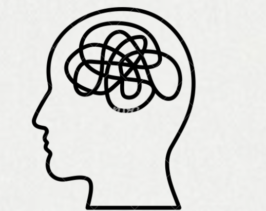In a world of constant confusion, it is common to feel lost or unaware of your surroundings. However, for some, this state of confusion can be much worse. If you have ever felt like you were drifting through moments without fully experiencing them or found yourself suddenly disconnected from your surroundings, you might be experiencing dissociation. In this article, we will explore some of the signs and symptoms of dissociation which you might relate to.
Dissociation manifests in various forms. This can be from feeling detached from your thoughts and emotions to experiencing gaps in memory or a sense of unreality. These signs can profoundly impact daily life and relationships, yet they’re frequently misunderstood or overlooked. Although dissociation comes in a spectrum, ranging from mild to extreme, it is common for most people to experience it to a certain degree. Now lets discuss some of the signs someone with dissociation might show.

- Feeling disconnected from the world and other people
Its a funny feeling to feel disconnected from the world and other people. A way that I would describe the feeling of disconnection is not having a proper sense of time and almost as if you are kind of in your own little personal bubble. This can be extremely daunting and can cause you to have a number of repercussions such as not being as sharp in responding to people as others. However, this feeling is not permanent and it can get better. I’ve experienced it myself. Also, this can apply in the sense that you might not feel connected to other people. When you have a conversation with someone, what they are saying might not resonate with you because you are so far pulled back that you don’t experience life the same way. An example of this might be when someone gives you an instruction, it takes a good minute for you to fully process what they have said. This is not mean anything bad about you, it just means that overtime as you start conversating with others more frequently and coming back to your old self, you will start to feel closer to the ones around you.
2. Issues recognizing your emotions
If you ask most people, they can tell you when they are feeling happy, sad, frustrated, excited, etc.; dissociated people usually cannot. Dissociation, as I have experienced it, traps you in your own world of numbness to where it is really difficult to distinguish not only you emotions, but what you are feeling in general. Whether it be what you want for dinner that night or which car to buy next, dissociation, from what I have found, can hinder a persons ability to make decisions. That is one of the most stressful parts about it, especially as life moves along at an relentless pace.
3. Going through life on autopilot
I want you to envision yourself watching a movie for a second. The characters moving along the screen. Out of your control. That is sort of what it feels like to experience dissociation. All the people around you are the other characters in film and you are lead. However, just as you are watching the movie, your experience is devoid of emotion or any personal connection to the characters at all. Life is simply going by without you truely experiencing it.
4. Having memory problems
Another common symptom of dissociation are memory problems. These are not just minor inconsistencies in your memory, but almost as if there is a whole part of your childhood that you cannot remember or have no recollection of. Even if you remember having a lively childhood, dissociation causes you to forget a large part of it due to its detaching nature. However, the memories should start flooding back once you have resolved some of the main issues that prompted the dissociation in the first place.
